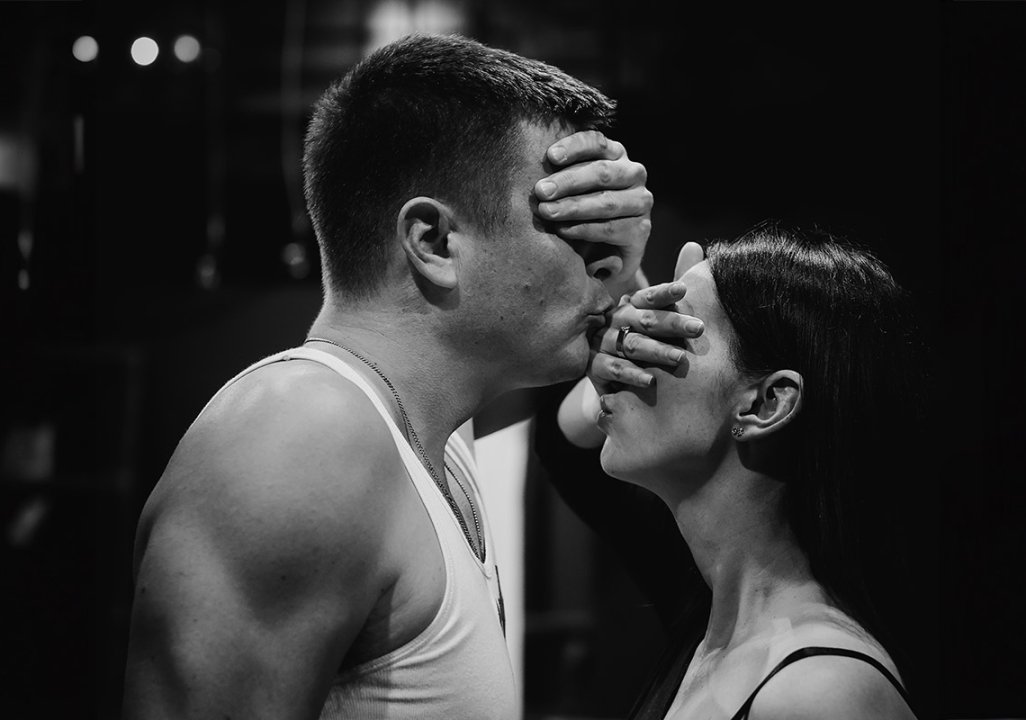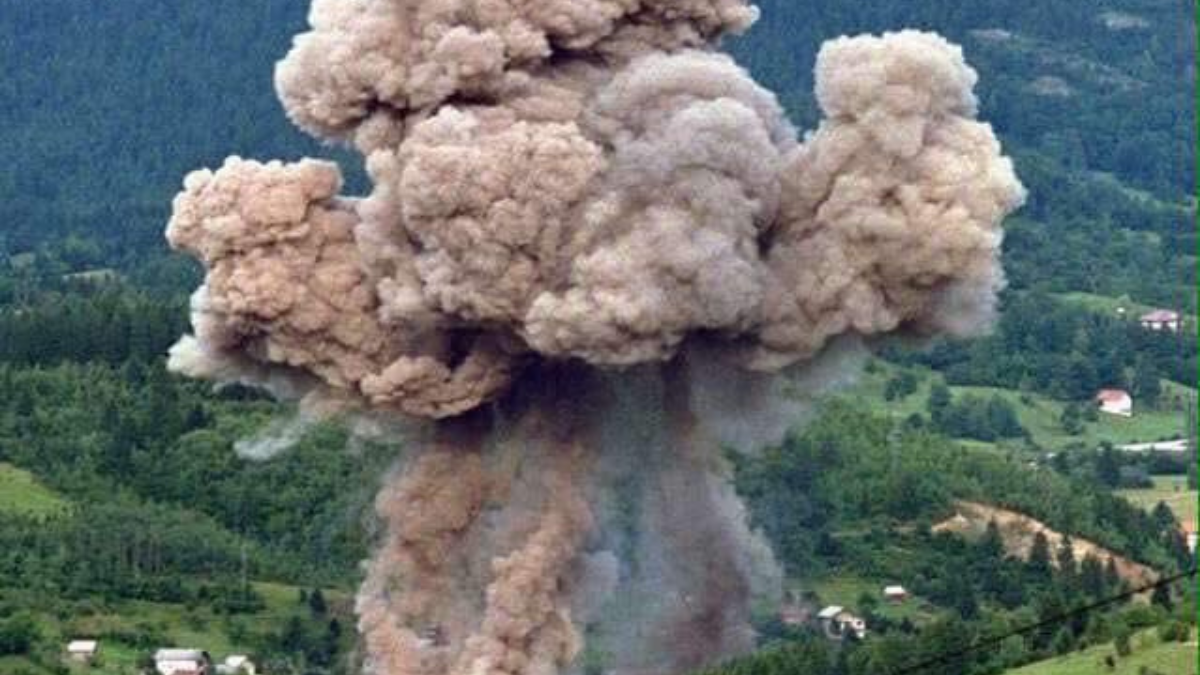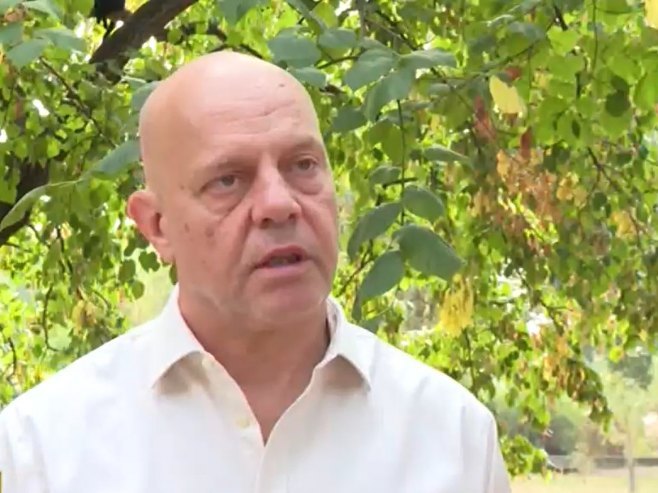The NATO bombing of Republika Srpska remains one of the deepest scars of the last Defensive-Fatherland War. The decision of a powerful military alliance to side with one party, the use of prohibited weapons, and the killing of innocent civilians were, among other things, consequences of a propaganda campaign that left no means unused to justify its goals.
For the Army of Republika Srpska, fighting a far superior enemy was inevitable.
Thirty years after the NATO airstrikes, tonight we uncover a story never told before.
In an exclusive interview for Radio Television of Republika Srpska, a former member of the peacekeeping mission in BiH shares his testimony. The footage of him chained to a lightning rod to protect Pale from NATO strikes in May 1995 circled the globe.
But the world was denied the full truth.
He clearly remembers how the NATO attacks on Serb positions began—UN peacekeepers issued an ultimatum demanding that Muslim forces withdraw to their original positions after ceasefire violations and escalating conflict, and that the Serbs return their artillery to storage.
“After three days, neither side complied with our demands. But the mission leadership ordered airstrikes to be carried out exclusively on Serb military targets,” said Pavel Teterevsky, a UN officer in BiH in 1995.
The attacks began on the afternoon of May 25, 1995.
The next day, May 26, a weapons and ammunition depot on the outskirts of Pale was selected as a target. For Officer Teterevsky, this was a red flag. He knew the depot had already been emptied, making the bombing utterly senseless. Nonetheless, the location was deliberately chosen because it was in a densely populated area.
“NATO command was fully aware that bombing could harm the civilian population of Pale, but they proceeded anyway, expecting that a large number of civilian casualties could provoke the Serbs into retaliating against us—UN peacekeepers. That would then serve as a pretext for NATO to launch a full-scale bombing of Republika Srpska,” Teterevsky stated.
As expected, the NATO attacks triggered outrage among the local population. Teterevsky and other peacekeepers warned their commander, British General Rupert Smith, that the strikes were pointless and that their lives were at risk. But the British general refused to back down. Teterevsky then made a decision that likely saved many lives.
“To stop the bombing, we needed an unconventional plan. A Serb TV crew arrived at our office, and I suggested this: take me to the already-bombed depot and film me chained up. Then air the footage with a message saying that future attacks could kill peacekeepers, not by the Serbs, but as a direct result of NATO bombings,” he explained.
And that’s exactly what happened—not just in Pale.
“I proposed that the Serbs film and release information saying that all UN peacekeepers on Serb territory were being placed in various military facilities. That way, if more bombings occurred, we could all be killed. At the same time, these locations should remain secret from the UN and NATO,” he added.
The pressure worked. The bombing stopped. According to Teterevsky, the international community concluded it was time to change its approach and replace military force with dialogue. The treatment of captured peacekeepers by the Army of Republika Srpska was humane and respectful.
“After the filming, which lasted about thirty minutes, we were moved to military barracks. We Russians stayed there for two or three days. The Army of Republika Srpska treated us with full respect and in accordance with all international norms,” Teterevsky said.
He recalls witnessing the false propaganda that painted Serbs as “the bad guys.” But the reality on the ground was very different. The bond between Serbs and Russians, then as now, remains strong.
“Serbs and we Russians are brotherly peoples. We share a special bond that nothing can break. We are brothers and sisters—you don’t get to choose them. That was true then, and it still is,” he concluded.
Source: RTRS









